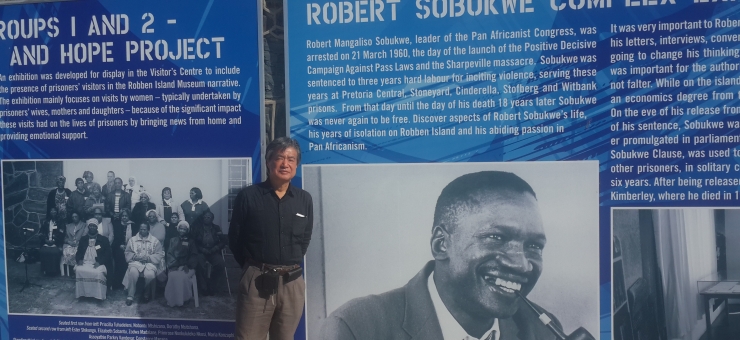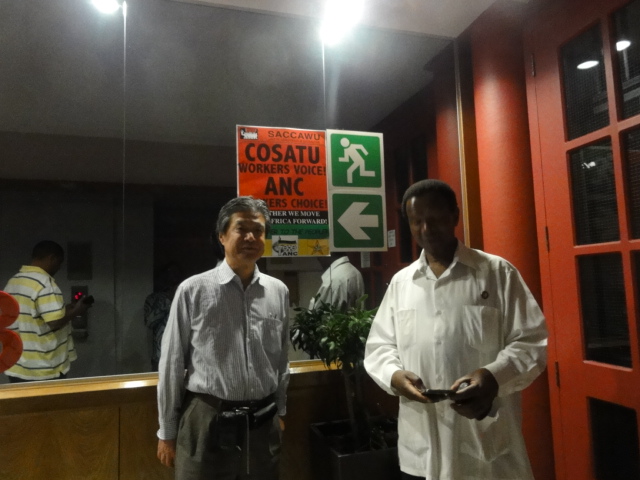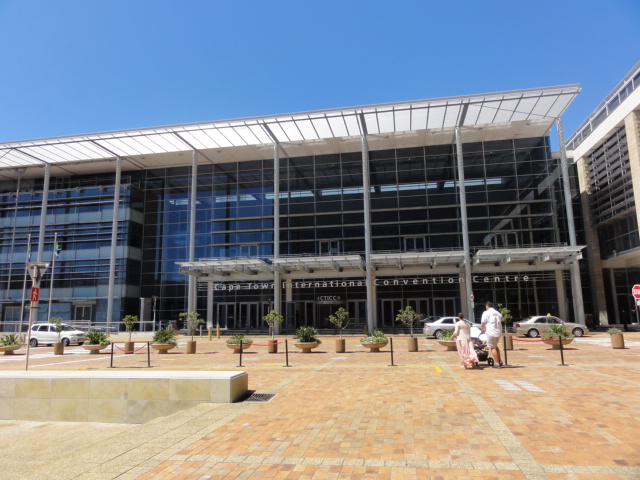UNI’s Director of Tokyo Office on fact finding mission to Cape Town ahead of World Congress

The head of UNI’s Tokyo Office, Eiichi Ito has been in Cape Town this week to see for himself the preparations for the upcoming UNI Global Union World Congress. Brother Ito was joined by the President of UNI Africa and General Secretary of SACCAWU, Bones Skulu, UNI Africa Regional Secretary Zakari Koudougou and Keith Jacobs, Head of UNI’s Johannesburg office.

Brother Ito was impressed by the CTICC convention centre in Cape Town where the congress will unroll in December.

Ito said, “The CTICC is an excellent convention centre and most hotels are in walkable distance. There are plenty of historic sites and interesting museums close by, including one dedicated to the anti-apartheid struggle. They are all a short cab ride from the CTICC or you can take one of the many tourist buses. The 4000 participants will also enjoy Cape Town’s wonderful scenery.”
Ito said he was also impressed with security and safety in the city.
“I found Cape Town centre to be very safe. It is well patrolled by police and other law enforcement officers. I visited the Japan Consul office and they confirmed that Cape Town was not only a safe city but also that security would be increased during the Congress in December. Of course participants should be careful as they would be in any major city around the world.”
During his visit, Ito also went to the Chris Hani Secondary School in Khayelitsha township on the outskirts of Cape Town.
Ito said, “It’s a great school with a lot of energy and fantastic students but also we saw how tough it was for them. Most students have no access to the internet and are living in poverty. The head of the school, Mr Madoda is passionate about introducing computer literacy into the school but funding is a big issue. South Africa is unfortunately an example of the 1% taking all. UNI must do its best to help with organising donation campaigns to the school in the run up to the congress.”
Back in Cape Town Brother Ito also discussed the ebola issue and concluded, “The South Africa authorities have taken very stringent measures by banning travel from the three worst affected countries, Liberia, Sierra Leone and Guinea and putting health checks at the South African airports. We will miss our affiliate brothers and sisters who will not be able to travel to the Congress from those countries but we understand the reasons why South Africa has introduced these measures. UNI, like all international organisations, takes ebola very seriously but we must also recognise that the affected areas of western Africa are far from South Africa. Africa is an enormous continent.”
Ito expressed his own personal pride at the UNI world congress being held on the African continent for the first time and especially in Cape Town, South Africa.
“The anti-apartheid spirit is still very much alive in South Africa and of course the memories of Nelson Mandela who passed away almost a year to the day before the UNI World Congress begins in December, are fresh and tangible. I visited Robben Island where Madiba spent 18 years in prison. Seeing his tiny cell, brought home his personal sacrifice and that of all the South Africans who fought against apartheid. I would urge all participants to do their history before they come here. A must read is Mandela’s “Long Walk to Freedom” and a must see is “Cry Freedom.” I cannot wait to be back in Cape Town in December with over 2000 of our brothers and sisters – Including You!”

